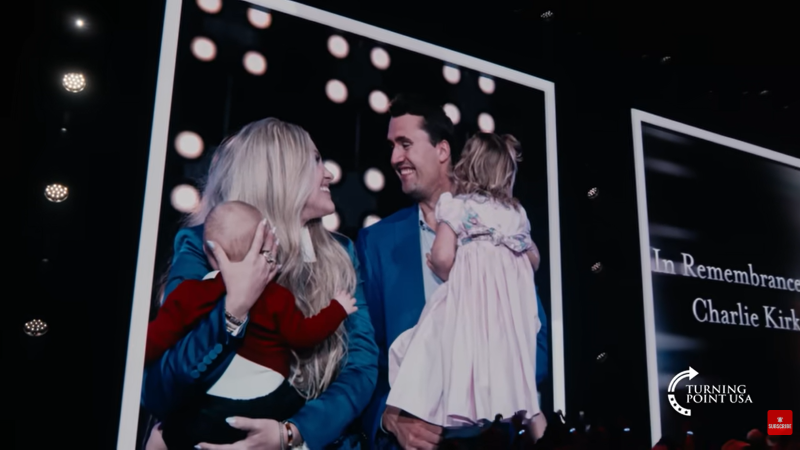One December Night, 1976
Sign up for a six month free
trial of The Stand Magazine!
Great things often grow from shockingly humble beginnings. Ordinary people in ordinary places are suddenly moved to do something that they don’t realize is significant. At least, they don’t realize it in the moment. It feels a little too much like everyday life. That’s the story of Don Wildmon and AFA’s founding—a story being told in AFA’s newest documentary film Culture Warrior: Don Wildmon and the Battle for Decency.
One frigid weeknight in December 1976, Rev. Donald Wildmon sat down with his family in the den. It had been a hectic holiday season for the minister of the 500-member First United Methodist Church of Southaven, Mississippi. He was enjoying some time to unwind with the people he loved.
Don and Lynda’s children—Tim (13), Angela (12), Donna (10), and Mark (5)—were out of school for the holidays and a cold snap had kept everyone around the fire after dinner on this particular evening. As Don was stretched out on his recliner, his eighth-grader Tim asked if they could watch something on television. With the Christmas holiday shortly upon them, Don assumed there would probably be some Christmas special or old show to get everyone reflecting on the season. The reverend—and his family—quickly found themselves getting far more than they expected.
Tim turned on the large wooden console TV in the corner of the den. The first channel didn’t have a Christmas program but rather some grown-up melodrama. A man and woman were engaged in poignant dialogue which began to grow more seductive as the scene progressed. As mouth met mouth and the sexual overtures were being made painstakingly obvious, it was clear where this was going next. Don asked Tim to change the channel.
However, switching the channel did not bring relief. The next show on display depicted a character spouting a line of intense profanity against another. Don had Tim change the channel again. Surely the other network would have something worth watching…
On the last of the three networks being sampled, the program seemed to feature the intriguing narrative twists of a “whodunit.” As the well-written story was transpiring and the family’s attention was quickly captured, the scene changed. Without any warning—and to Don’s horror—one character began using a hammer to beat the life out of a defenseless victim who had been bound and gagged.
Don had enough. “Just turn it off, Tim. Just turn it off,” Don commanded his oldest.
Don sat in silence. The kids dispersed. Don continued to sit. Donna, 10 years old at the time, knew her daddy was angry. “He wasn’t mad at us or anything but I could tell by his voice that something was bothering him,” she said. “And I knew by him just sitting in that chair afterwards for a little while that something was wrong.”
Over the next few days, Don reflected on shifts that had happened in TV, movies, and music. He thought of the many ways that TV had been a positive influence in his family. He thought of the educational programs like Sesame Street and Mr. Rogers Neighborhood which had helped Mark, his youngest, learn his alphabet and numbers. He thought of important world events covered on the evening news that were beginning to capture the interest of Tim. And he also considered the culturally enriching coverage of the Montreal Olympics earlier that summer, where the gymnastics rounds had especially excited his girls, Angela and Donna.
It wasn’t that Don had totally ignored the erosion happening in media prior to that evening. He had noticed how movies had become more violent, profane and sexually explicit in late 1960s and early 1970s. Pornography was becoming commonplace on newsstands and at convenience store counters. He had been put off by it all but had chosen to simply ignore it and go about his business. After all, he could always just ignore it because it wasn’t really his problem.
But something changed deeply for Don that evening in 1976. He was now reconsidering the passivity of what he called the “look the other way approach.” While such an approach had helped ease his conscience from getting upset every time he saw something objectionable, he was now seeing the far-reaching implications of the social decline being pumped into countless homes through network entertainment. “Look what happened while we looked the other way,” he would later say in his book. “Of course, all those years while I conveniently ‘looked the other way’ I never dreamed my family would one day be affected by the very things I was ignoring”.
This was the seed of the idea that would become the American Family Association. In the spring of 1977, Don began to organize an awareness campaign in his local church called “Turn the Television Off Week.” It would be picked up by news outlets, discussed in newspaper columns, and stir debate and action around the country. Don would step down from the pulpit and start a new organization to keep up the fight: the National Federation for Decency. The rest, as they say, is history.
[This is the first part of an on-going series of historical snapshots from the history of AFA. To watch the documentary Culture Warrior: Don Wildmon and the Battle for Decency for FREE, go to culturewarrior.movie ]

Sign up for a free six-month trial of
The Stand Magazine!
Sign up for free to receive notable blogs delivered to your email weekly.



















